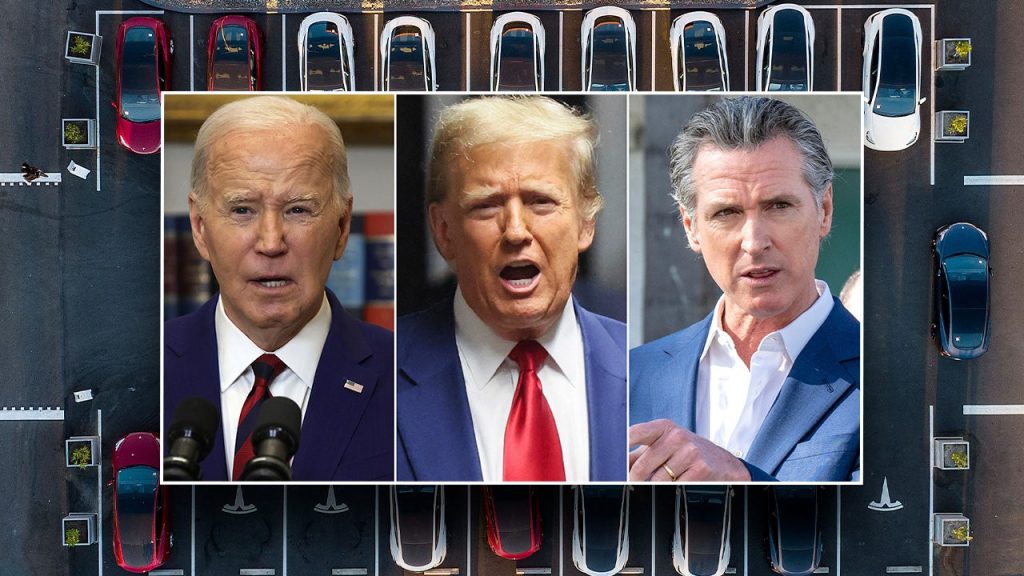Former President Trump’s campaign is once again criticizing President Biden’s climate agenda, specifically taking aim at his administration’s electric vehicle (EV) policies. In a statement to Fox News Digital, the Trump campaign criticized Biden’s actions related to California’s proposed EV mandate regulations, which aim to phase out all gas-powered car sales in the coming years. The Trump campaign accused Biden of imposing an “insane, job-killing electric vehicle mandate” and preparing to approve California’s waiver request that would outlaw the sale of gasoline-powered automobiles. The campaign pledged to revoke federal EV requirements and any waivers issued for California if Trump were to be re-elected.
The Environmental Protection Agency (EPA) is expected to finalize a waiver requested by the California Air Resources Board (CARB) to approve a plan that would set statewide EV sales requirements starting in 2026 culminating in a complete ban on gas cars by 2035. This waiver has faced opposition from various stakeholders, including automakers, car dealers, lawmakers from both parties, and the energy industry. The Trump campaign asserted that Biden’s approval of this plan would have catastrophic consequences for the U.S. auto industry and choose American consumers over “extremist” bans on gasoline cars. Trump’s campaign has promised to prioritize car affordability and choice for consumers if he were to return to office.
In March 2022, the EPA reinstated California’s authority under the Clean Air Act to implement its own emission standards and EV sales mandates, allowing other states to adopt California’s rules. This decision came after the Trump administration had revoked the state’s authority to implement standards that conflicted with federal regulations. Subsequently, CARB unveiled its Advanced Clean Cars II plan in August 2022, aiming to lead the way toward a zero-emission transportation future. The plan includes requirements for a percentage of new car sales to be zero-emission, increasing annually until all sales are required to be zero-emissions by 2035. More than a dozen other states have pledged to adopt this plan, which has garnered support from environmental advocates and raised concerns among industry groups and policymakers.
The Alliance for Automotive Innovation, an industry group representing major automakers, highlighted the U.S. auto industry’s transition to electric vehicles through significant investments in technology and product announcements. The group emphasized the importance of assessing whether California’s Zero Emission Vehicle (ZEV) regulation would be suitable for all states and called for policymakers to consider the implications of implementing such policies nationwide. Data from the group suggested that while battery electric and hybrid car sales have seen growth, there has been a recent decline in EV sales in California, raising questions about the feasibility and impact of transitioning to zero-emission vehicles.
California Governor Gavin Newsom defended the state’s climate agenda and commitment to EVs, criticizing Trump’s comments and expressing concerns about the politicization of environmental policies. Newsom highlighted the global shift towards environmentally friendly technologies and accused the Trump administration of rolling back environmental standards and targeting efforts to regulate tailpipe emissions. He emphasized the need to future-proof climate policies and ensure progress continues despite political challenges. Newsom’s office and the White House did not respond to requests for comment on these issues. The increased focus on EV policies and environmental regulations underscores the ongoing debate between political leaders and stakeholders regarding the future of transportation and efforts to combat climate change.


